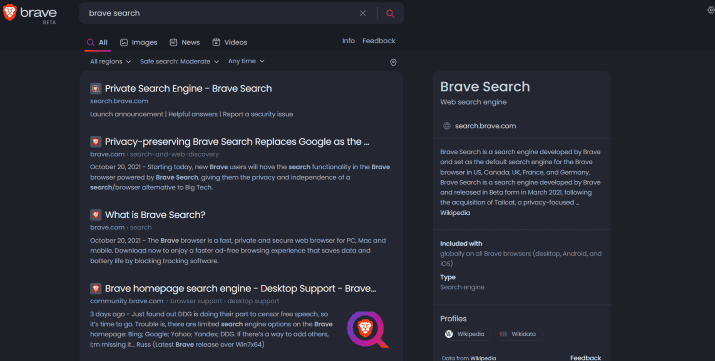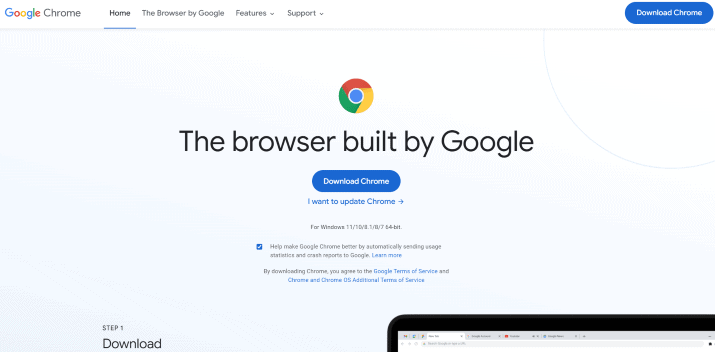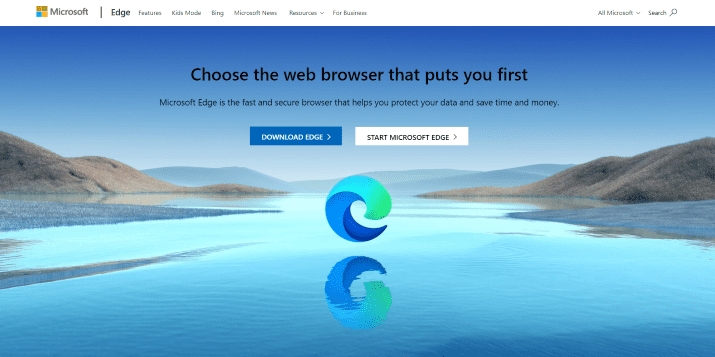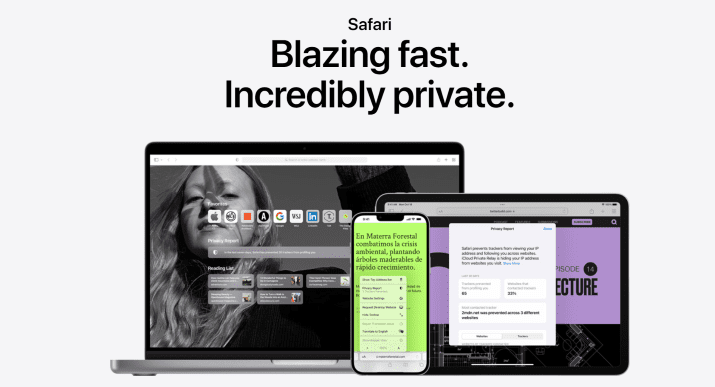The Brave browser is a relatively new entrant into the world of web browsers, and it has quickly gained a following among users who are looking for a more secure and private browsing experience.
However, one question that many users have is whether or not the Brave browser is safe and secure.
There are a number of factors to consider when assessing the safety and security of a web browser, including its level of privacy protection, the number of security features it offers, and how well it handles vulnerabilities.
In this article, we will take a look at the features that make Brave one of the safest and most secure browsers, and we will also explore some of the potential security risks associated with using this browser.
Brave Browser’s Focus is on Security
There’s a lot of jingles about how Brave Browser is the safest and fastest browser, but what are the features that it stakes those claims on?
Blocking Ad-tracking and Malvertising
The Brave browser blocks ad-tracking cookies and stops ads from loading, which can speed up your browsing experience. It also protects you from malicious software that can be hidden in online ads.
Brave is a Chromium-based browser, so it supports all the same extensions as Google Chrome. You can install AdBlock, uBlock Origin, Privacy Badger, Ghostery, and other ad blockers from the Chrome Web Store.
When you install an extension in Brave, it will automatically block Ad trackers on that site. You can whitelist sites to support your favorite content creators.
If you want to allow ads on a particular website, you can do so by clicking the shield icon in the address bar and selecting “Disable Ad-Block.”
Brave’s built-in ad blocker can be toggled on or off from the Preferences menu.
Companion Brave Search Engine
You may not know this, but the tracking doesn’t just occur in the browser. It also happens on the search engines that you use.
When you perform a search, your computer sends data to the search engine about what you’re looking for. The search engine then uses that data to target you with ads and track your browsing activity.
That’s why Brave created its own companion search engine.
The Brave browser comes with a companion search engine, which is based on the open-source DuckDuckGo search engine.
When you search for something in the address bar, Brave will automatically use its search engine. You can also set it to use Google, Yahoo, or Bing as your default search engine.
In addition to being privacy-focused, the Brave search engine is also designed to be faster than other search engines.
The Brave search engine is still in beta, so it may not be as reliable as other search engines. However, it’s worth trying if you’re looking for a more privacy-conscious option.
Also Read: Brave vs DuckDuckGo
Compatibility
What does compatibility have to do with privacy?
Well, if a browser isn’t compatible with the websites you visit, then it can’t protect you from those sites.
Brave is based on the open-source Chromium browser, which means it’s compatible with most websites and web standards.
Brave also supports Windows, macOS, Linux, Android, and iOS devices.
Explore: Brave vs Vivaldi
Bookmark and Sync Data safely
When you sync data between devices, you’re essentially sending all your browser data to a third party.
This can be risky if that third party is not trustworthy or if they lose your data.
Brave Sync is different because it encrypts your data before syncing it with the cloud. This means that even Brave cannot access your data without your password.
Brave Sync is also optional. You can choose to sync your data or not, depending on your privacy preferences.
You can also choose which data you want to sync between devices. For example, you might only want to sync your bookmarks and passwords, but not your browsing history.
The Brave browser also supports password management extensions like LastPass and Bitwarden.
Password managers are a great way to keep your passwords safe and secure.
When you use a password manager, you only have to remember one master password. The password manager will then fill in your passwords for you on websites and apps.
Brave is one of the few browsers that come with built-in support for password managers.
Explore: Brave vs Edge
Access to Tor Anonymity Network
The Tor network is a group of volunteer-operated servers that helps people around the world improve their online privacy and security.
When you browse the web with Brave, you can choose to route your traffic through the Tor network.
This will encrypt your traffic and hide your IP address from the websites you visit.
It’s important to note that using the Tor network will slow down your browsing speed.
Brave Browser is also faster than others
One of the main selling points of Brave is that it’s faster than other browsers.
This is because Brave blocks ads and trackers by default. They can slow down your browsing speed, so Brave speeds up website loading times by blocking them.
Brave also uses a technique called “parallel searches” to load results from multiple sources at the same time.
This makes Brave faster than other browsers, including Chrome and Firefox.
You can try out the Brave browser for yourself by downloading it from the official website.
Check Out: Brave vs Opera
What is Brave Browser’s Business Model?
How in the world is Brave making any money if their whole premise is built around blocking ads?
Brave does earn money from its ad-blocking feature, which it plans to share with publishers based on how much time users spend viewing their ads. It also has a ” tipping” system that allows people to send micropayments to content creators they like.
Then there’s the Ad network, which will let businesses pay to have their ads served through the Brave browser.
Brave announced a “Basic Attention Token” (BAT) that will be used to reward users, publishers, and advertisers. So instead of seeing third-party adverts, you might see a BAT advert.
The browser tracks the sites you visit and the ads you see, in order to target you with more personalized advertising.
The company has plans to launch a “privacy-respecting” ad network that will pay users for their attention while they browse the web.
Also Read: Brave vs Chrome
How Brave Compares to other Browsers
Surely you must compare Brave to other browsers before making a decision about how safe and secure it is. So, how does Brave stand up?
1. Chrome
Google’s own Chrome is the most popular browser in use today. It’s fast, efficient, and generally pretty secure.
However, it has had its share of vulnerabilities – some of which have been pretty serious.
For example, in 2018 there was a serious security flaw discovered that allowed websites to access your webcam and microphone without your permission.
Google was forced to patch the flaw, but it just goes to show that even the most popular browsers can have their weaknesses.
Brave, on the other hand, has built-in security features that protect you from these kinds of vulnerabilities.
As we have stated before, Brave is based on Chromium, so it shares a lot of Chrome’s security features. However, Brave goes beyond just Chromium security features, adding its own layer of protection.
Verdict:
Chrome is more popular and has a longer track record, but Brave is catching up fast. Both are pretty safe and secure browsers, but Brave is the better choice if privacy is a concern for you.
Useful Post: How To Set Chrome As Default Browser?
2. Microsoft’s Edge
Microsoft’s Edge browser is a fairly new entrant into the market, but it’s quickly gained a following due to its security features. Like Brave, Edge is based on Chromium, so it shares many of the same security benefits.
Edge also has a built-in ad blocker, which helps to protect you from malicious ads.
In addition, Edge includes a number of other security features, such as Windows Defender SmartScreen and Tracking Protection.
Having said that, Edge is not as privacy-focused as Brave. In fact, Microsoft has been criticized in the past for collecting too much data about its users.
Verdict:
Aside from Edge becoming somewhat of a cult browser for Mac users, it really has nothing on Brave in terms of security and privacy.
3. Safari
Safari is a web browser developed by Apple Inc. It is the default browser on macOS and iOS devices. Safari has been praised for its speed, security, and features.
It uses a sandboxed environment to protect users from malicious code on the web.
Safari is often compared to Brave because it is ubiquitous. However, it would be unfair to compare them directly as they both offer different experiences.
Safari is more of a general-purpose browser targeted at Apple users to have a seamless experience with other Apple products.
On the other hand, Brave is geared towards privacy and offers more customization options to the user as well as better privacy options.
Verdict:
When it comes to security, both Safari and Brave are pretty good. Safari has been around for longer and benefits from being part of Apple’s ecosystem. Brave is newer, but it benefits from being open-source and having a large development community.
Also Read: How To Reinstall Safari On iPhone?
Are There Potential Risks of Using Brave?
Certainly, nothing is perfect and there are always potential risks when using any browser, Brave included.
One potential issue is that since Brave relies on Chromium for its base code, it may be more vulnerable to certain types of attacks or security flaws.
Additionally, because Brave is still a relatively new browser, there may be some kinks that have yet to be worked out and could lead to potential security issues. Although, we are yet to see it.
The Brave team is constantly working to improve the browser and address any possible vulnerabilities, so these risks are likely minimal.
Also Read: Best Brave Alternatives
Summary
Brave can feel unfriendly to those used to Chrome’s extensions and interface, but it is a more private and secure browser.
For all the drawbacks that come with using this browser, none of them are showstoppers, but merely barriers to be overcome. So, is brave browser safe & secure? Yes, it is.
Tom loves to write on technology, e-commerce & internet marketing.
Tom has been a full-time internet marketer for two decades now, earning millions of dollars while living life on his own terms. Along the way, he’s also coached thousands of other people to success.





